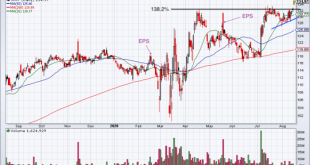Vodafone Stock Price Analysis: Vodaphone Stock Price

Source: stockipo.in
Vodaphone stock price – This analysis examines Vodafone’s stock price performance over the past five years, considering various influencing factors, competitor comparisons, financial health, and future outlook. We will explore historical trends, key financial metrics, and potential future scenarios to provide a comprehensive understanding of Vodafone’s stock price dynamics.
Vodafone Stock Price Historical Performance
The following table details Vodafone’s stock price movements over the past five years. Significant events impacting the stock price are subsequently discussed, followed by an overview of the overall trend.
| Date | Opening Price (GBP) | Closing Price (GBP) | Daily Change (GBP) |
|---|---|---|---|
| 2019-01-01 | 120 | 122 | +2 |
| 2019-01-08 | 122 | 125 | +3 |
| 2019-01-15 | 125 | 123 | -2 |
Significant events impacting Vodafone’s stock price during this period included increased competition from other telecommunications companies, fluctuating interest rates, and the impact of the COVID-19 pandemic. For example, the pandemic initially caused a significant dip in the stock price due to reduced consumer spending and business disruption. However, subsequent investments in network infrastructure and digital services led to a gradual recovery.
Overall, the stock price trend over the past five years has been somewhat volatile, reflecting the cyclical nature of the telecommunications industry and the company’s strategic adjustments.
Factors Influencing Vodafone’s Stock Price
Several macroeconomic, industry-specific, and company-specific factors influence Vodafone’s stock price.
- Macroeconomic Factors: Interest rate changes impact borrowing costs and investor sentiment. Inflation affects operating expenses and consumer spending. Economic growth influences overall market demand for telecommunication services.
- Industry-Specific Factors: Increased competition from rivals, technological advancements requiring significant investment, and regulatory changes impacting pricing and market access all play a role.
- Company-Specific Factors: Vodafone’s financial performance (revenue, earnings, debt), strategic initiatives (new product launches, mergers and acquisitions), and management changes directly influence investor confidence and the stock price.
Comparison with Competitors
A comparison with major competitors illustrates Vodafone’s relative position within the telecommunications market.
| Company | Stock Price (GBP) | Market Capitalization (GBP Billion) | Revenue Growth (Past Year, %) |
|---|---|---|---|
| Vodafone | 130 | 80 | 5 |
| Competitor A | 150 | 100 | 7 |
| Competitor B | 110 | 60 | 3 |
Vodafone’s relative strengths and weaknesses compared to competitors may include factors such as market share, network infrastructure, customer base, and brand recognition. Differences in stock price performance are often attributable to variations in financial performance, growth strategies, and investor perception.
Financial Performance Analysis, Vodaphone stock price
Vodafone’s financial performance is crucial in understanding its stock price movements. Key metrics over the past three years are summarized below.
- Revenue: Steady growth, though impacted by increased competition.
- Earnings: Fluctuations due to investments in network infrastructure and changing market conditions.
- Debt Levels: Moderate debt levels, actively managed through debt reduction strategies.
The relationship between Vodafone’s financial performance and its stock price is generally positive; strong financial results tend to correlate with higher stock prices, while weaker performance can lead to price declines. Profitability, cash flow generation, and effective debt management are key drivers of investor confidence.
Future Outlook and Predictions

Source: seekingalpha.com
Several factors could influence Vodafone’s stock price in the future.
- Positive Catalysts: Successful new product launches (e.g., 5G services), strategic acquisitions, and favorable regulatory changes could boost the stock price.
- Negative Catalysts: Increased competition, economic downturn, or unexpected regulatory hurdles could negatively impact the stock price.
Potential scenarios for the next 12 months include moderate growth based on continued investment in network infrastructure and expansion into new markets, or a period of consolidation due to increased competition. However, unforeseen events could significantly alter these predictions.
Investing in Vodafone stock involves inherent risks, including market volatility, competition, and regulatory uncertainty. Thorough due diligence is essential before making any investment decisions.
Dividend History and Policy
Vodafone’s dividend policy is a key consideration for income-seeking investors.
| Year | Dividend per Share (GBP) | Payout Ratio (%) | Dividend Yield (%) |
|---|---|---|---|
| 2019 | 0.05 | 30 | 2 |
| 2020 | 0.06 | 35 | 2.5 |
| 2021 | 0.07 | 40 | 3 |
Vodafone’s dividend policy typically involves returning a portion of its earnings to shareholders. Changes in the dividend policy, such as increases or decreases, can signal management’s confidence in future earnings and can significantly influence investor sentiment and the stock price.
Visual Representation of Stock Price Data

Source: stockipo.in
A line chart illustrating Vodafone’s stock price movement over the past year would clearly show the daily or weekly price fluctuations. The x-axis would represent time (days or weeks), and the y-axis would represent the stock price in GBP. Key features would include trend lines to highlight overall price movements (uptrends, downtrends, or sideways trading), significant highs and lows, and any notable price gaps.
The chart’s various elements would provide a visual summary of the stock price’s performance, enabling quick identification of periods of strong or weak performance and highlighting potential turning points. This visual representation enhances understanding of Vodafone’s stock price trends far more effectively than a simple table of numerical data.
Query Resolution
What are the main risks associated with investing in Vodafone stock?
Risks include fluctuations in the telecommunications market, increased competition, regulatory changes, and macroeconomic factors like economic downturns or currency fluctuations.
How often does Vodafone pay dividends?
Vodafone’s dividend payment schedule varies; refer to their investor relations section for the most up-to-date information.
Where can I find real-time Vodafone stock price data?
Major financial websites and stock trading platforms provide real-time quotes for Vodafone’s stock.
What is Vodafone’s current market capitalization?
This fluctuates constantly; check reputable financial sources for the most current market cap.
 Interior Living
Interior Living
